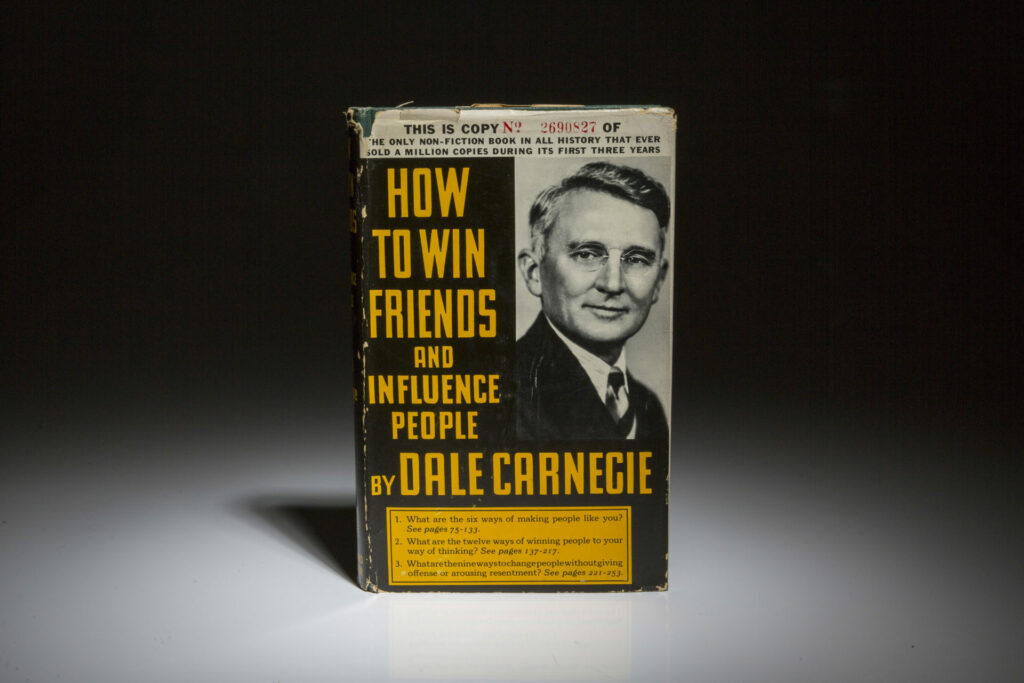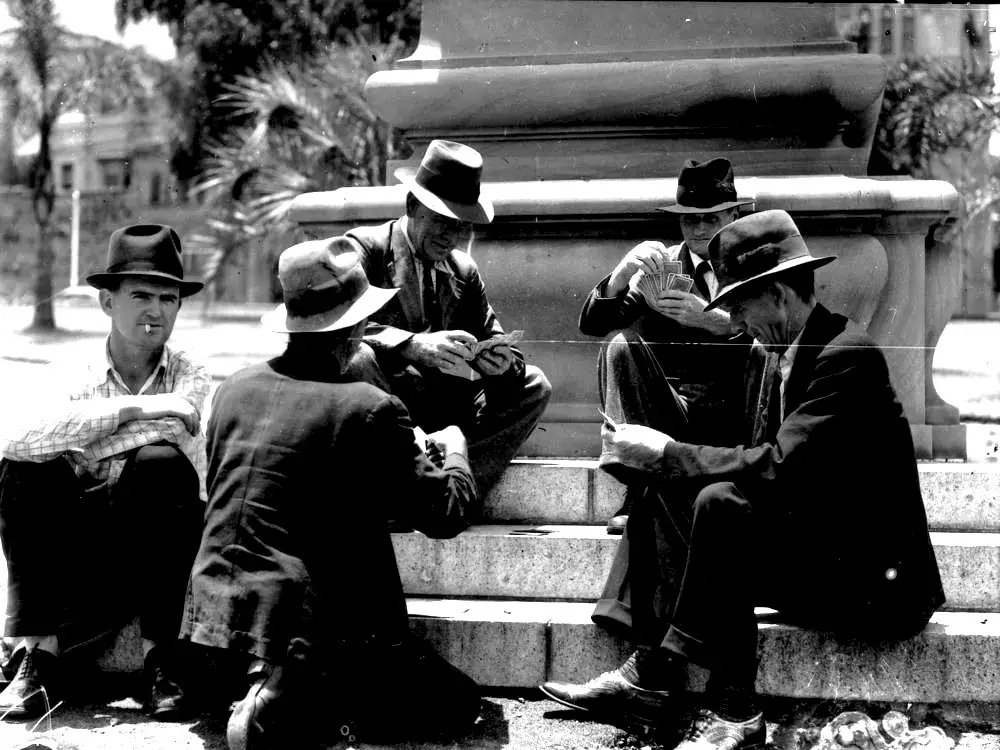Most Recent News


Popular News




Become a better you. Win friends; influence people. Reviewing a popular book by Dale Carnegie.

How to Win Friends and Influence People is a book written by Dale Carnegie in the 1930s. It is the leading self-help book on human relationship psychology. The book holds this title even today, nearly a century after it was written.
It is a quick read—I just knocked it out in about five days. I read it once when I was younger, but wanted to pick it back up again and see what I had forgotten.

There are some gems in the book. And the main takeaways are things that would be helpful for all of us.
For instance, Carnegie asserts that there are three fundamental techniques in handling people. These are:
Each of these are deadly accurate.
You will rarely successfully handle a person by condemning or complaining. But if you make them desire something, like you do with children, then they will do what you want. Because they want to do it, too. Once they do the thing you want, you supply sincere appreciation to encourage them to continue in such behavior.
It is common sense, but so many people lack this basic knowledge of human relations. How often do you feel people give you sincere appreciation and try to encourage you versus complaining or criticizing to you? We all know this is rare, even though it is so obvious.
The book also teaches its readers 1) how to make people like you, 2) how to win people to your way of thinking, and 3) how to be a leader (changing people’s attitudes and behaviors). Pair this knowledge with the Belmod theory and you will be set.
For the average political dissident, the important one is #2. But to truly refine it requires at least a modicum amount of #1 and #3. No one will be won to your way of thinking if you are not persuasive like a leader and they don’t like you.
I think many of us in the online generations missed the memo on “how to win people to your way of thinking”. We go about it all wrong. Our approach is directly opposite of how Carnegie would say to do so. This is true whether it is in person or online.
We should be 100% in the field of rhetoric and should be far more friendly in the process. For instance, here is his list for winning people to your way of thinking:
How many times do you see internet commentators following this strategy to change minds? How often do you see articles written in such a manner as to follow these ideals? Hell, even I screw them up pretty consistently. They are challenging to follow, but Carnegie is right with them.
I have always known that to win minds you must first win hearts—and that requires friendliness, patience, and not trying to be the superior/more intelligent person.
Personally, my top picks for this category that I feel are essential for changing minds are #7, #8, #9, and for certain personalities #12. Strong personalities love a challenge. But everyone has their own viewpoint and reasons for thinking the way they do. To change that position, one must get into the mind and heart of the other person. If you do so, you know what direction to go to incentivize change.
Very few people are changed by logic or argument. But everyone—even those who use logic—can be won over through this method.
I have consistently failed to change minds when I present data and logic (as most of you likely have, as well), but I have changed minds when I present arguments in the above fashion. Such as when I appeal to emotion (the nobler motives), or when I have planted seeds only to let the person take credit for the idea later.
If we want success, we have to give up the pride. We won’t win hearts and minds if we gloat and act superior; we will only make enemies and solidify people into their positions more firmly. If that happens, who cares who is the superior logician? It means nothing to anyone. No one is going to give you a trophy for being right.
But truly changing minds matters in the real world—And is far more difficult and intellectually rigorous than winning an argument. Which is why I have always admired those who can do so. Because the person who can win an argument wins a meaningless squabble, but the person that changes minds is a leader that can change the world. One is clearly superior to the other, even if it does not always appear so and no one proclaims it.
The steps are accurate, which is why this book is so popular a near century later.
They have even worked on me. When internet commenters come and harshly rebuke an article, I largely ignore it completely or become even more staunch and write even more articles on the subject. This happened early on with my libertarian and tranny articles, which is why there are so many of them now. Their complaints and threats backfired completely—If the complainers had just stayed silent, I probably would not have nearly as many articles on those two subjects.
But when someone stops by, begins friendly, puts themself in my position (someone trying earnestly to help my people while writing thousands of words a week, which invariably means I will make mistakes and be wrong quite often), and then addresses places of improvement—I not only listen, but usually act quick to correct the problems. Just the same as most of you would, given the two options.
These people could be blue-haired leftist Antifa members for all I know (because they are anon commenters), but I correct whatever they uncover. So it is clear: One method works, the other one does not. Carnegie nailed it.
A harsh burst of anger makes a person feel superior and important for a brief second, but it does absolutely nothing to change behavior or correct error. The wise man will rebuke softly, but their rebuke actually carries with it impact and change.

The book is pretty stellar; I only have one critique. That criticism is that it was definitely written in the 1930s. The entire time while reading it, I could not help but think it should be titled “How To Win White Friends and Influence White People”.
While excellent, this was a book meant for a different demographic composition.
For instance, in the section on nobler motives, Carnegie shares a story of how a car payment collector went out to numerous uncooperative overdue customers and allowed them to adjust their own bill. The result was that most were honest and adjusted it fairly based on the disputes. Out of six, only one refused to pay a penny, but five gave the company the best of the charges. The collector then says: “…the only sound basis on which to proceed is to assume that he or she is sincere, honest, truthful and willing and anxious to pay the charges….to put it differently and perhaps more clearly, people are honest and want to discharge their obligations.”
Please go into the Hispanic-dominant locales in Tucson, AZ or the black-majority area of south-side Chicago and try this. It would make a hilarious sitcom. I would truthfully be surprised if the debtors even let the collector in their house, or if the collector leaves unassaulted. Even if they got in, the adjustment would also be pegged at zero additional charges. Or maybe even a negative “reparations” adjustment, where the collector now owes the debtee.
Another example is found in the leadership section, where Carnegie mentions referencing mistakes indirectly. He states a story of Charles Schwab passing through one of his steel mills, when he came across some employees smoking underneath a “no smoking” sign. Instead of reprimanding them, Schwab purportedly gave them free cigars and said, “I’ll appreciate it, boys, if you will smoke these on the outside”. Carnegie said the message was taken and they never again smoked in that area.
If these were our modern diversity co-citizens, what would happen now is you would get yelled at as racist or they would be there again the next day asking for another free cigar. I know this because I saw a near exact replica of this scenario unfold, but referencing cigarettes instead of cigars. What a world.
There are many such examples in the book. I would be reading and thinking that this is good advice, but then simultaneously recognizing that this story is demographically outdated. This was definitely written for a business and personal audience in the 1930s when whites were a super-majority and trust was high with minimal bureaucracy. The environment has changed a bit.
But if you need to win some white friends and influence white people, this is still a great book.
Even if we move past the principles and demography outlined in this book, the real power in this book is not in its instructions, but in its teachings on an era. The book points you to a different time period in American history—With all of its phenomenal characteristics.
It shows how trust used to be a thing, how language used to be so powerful and eloquent, how everyone was open to communicating, and similar social environmental realities that seem foreign to us today.
For instance, Carnegie could walk up to his landlord and request a rate reduction. Now, most of us would be hard-pressed to even know who our landlord is. It’s some faceless corporation three states over that does everything in a bureaucratic and standardized manner. And the guy that owns the building is in China, he’s just contracting with the property management company.
For another example of an era cultural difference, in the book a man wrote letters directly to CEOs of major corporations to get a low-level job. Now, the CEOs would not even see those letters. There is a press-handling department which would vet and destroy them far in advance.
And the language, don’t get me started on the language in the book! This article is already too long, just go read the book and see how women speak to men and men speak to women. Truly, it was a different world. I sometimes struggle to believe it actually existed.
It was only one hundred years ago that the entire world was directly opposite of where we are now.
There are a hundred such examples in the book. These are whitepills without us even recognizing it. The country was a whole different social organism, one we never got to experience but one we know existed through writings such as these.
We learn that:
That realization—and how to handle people—are the true powers found within this How To Win Friends and Influence People by Dale Carnegie.
Read Next: The Leviticus Punishment On America
If you enjoyed this article, bookmark the website and check back often for new content. New articles most weekdays.
You can also keep up with my writing by joining my monthly newsletter.
Help fight the censorship – Share this article!

(Learn More About The Dominion Newsletter Here)